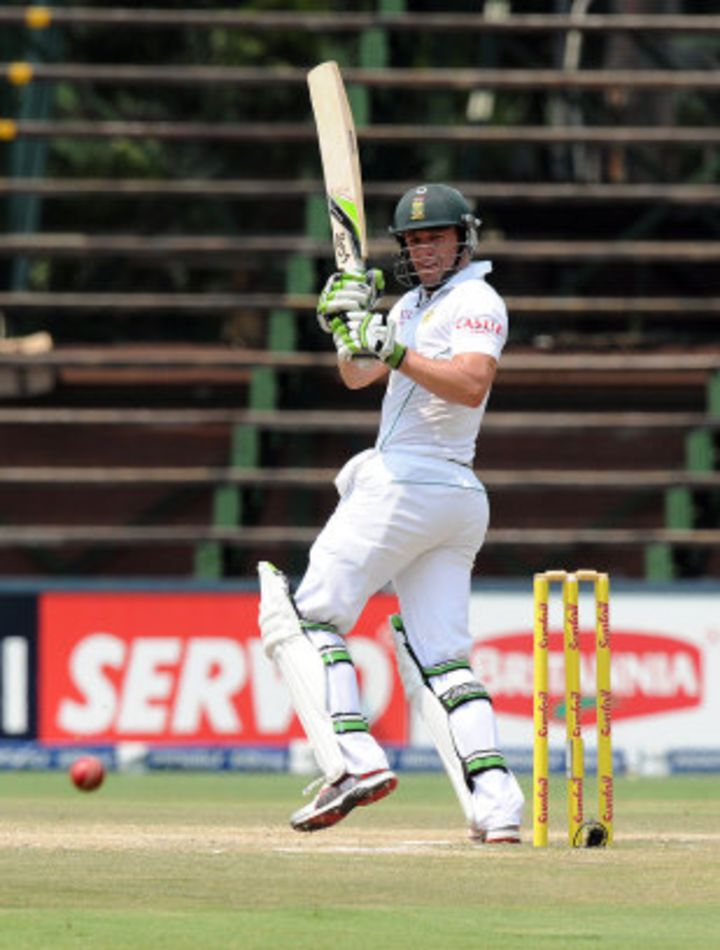Is Test cricket good for cricket?
Test cricket isn't fragile. At the moment, cricket as a whole is fragile. In trying too hard to protect Test cricket, we are losing the whole sport

I am a huge cricket fanatic. I play and watch cricket, and closely follow all developments related to the game. In my 18 years following the game, I have lived through the various phases the game has passed through before reaching its current state.
Test cricket, I agree, is the ultimate test for a player's skills, and it is very unique. But there are some glaring issues in Test cricket which will force a prospective investor to think twice before investing. Why has Test cricket declined in its audience appeal? Why has the standard of Test cricket reduced considerably in the last decade? Why has Test cricket inducted just two nations (Bangladesh and Zimbabwe) in the last 25 years?
There are two questions we never ask ourselves. Does Test cricket deserve all these painstaking efforts to revitalize the game? If we do away with, or at least sideline Test cricket for a while, will cricket benefit from it?
Yes and yes. The inconvenient truth that both the answers are 'yes' is the reason behind this mess called the new ICC revamp proposal.
Test cricket consumes a huge amount of money for very little returns. The fact is that only three countries in the entire world operate with a profit margin playing Test cricket. It's appalling to see the SLC applying for a $8 million interest-free loan, while its players fetch millions in the IPL.
Besides incurring huge losses when their teams play Tests, the smaller boards are also deprived of the invaluable 'player time' that they can invest elsewhere. Take AB de Villiers for example. He spends roughly half his on-field time for South Africa playing Test cricket. But the impact he has over generation of money when he plays Test cricket is much lesser than when he plays shorter formats. Around 50,000 spectators come to watch him play for his home team in the IPL, which is perhaps comparable to the total number of spectators who come to witness him in action over the duration of a couple of home Tests.
In pure business sense, his talent is being 'wasted', for want of a more apt term. It is a befuddling situation for almost all the players from outside the 'Big Three' - Dale Steyn, Chris Gayle, Kumar Sangakkara, Mahela Jayawardene and everyone else.
Now the question arises: how can their playing days be better utilised? A practical solution is T20 cricket. My suggestion is to widen the scope and appeal of the Champions League T20, and spread it to various markets around the world. Every board must have a stake in the tournament, with at least three teams participating from each country. The teams can be split into groups of four, and each team will play a home and away fixture with each of the other teams. A share of revenues from each of those fixtures will be split among the hosting cricket boards.
This can help the tournament in two ways. Firstly, it will appeal to all cricket-playing countries at once, thus generating an enthusiasm equivalent to an ICC event. Secondly, it will get global attention for the unfamiliar teams from smaller leagues like CPL. For instance, if the fate of Mumbai Indians hinges on a game between the Hawksbills and the Dolphins, surely the cricket community will take notice.
Another suggestion is to make the ICC events more appealing and inclusive. A match between South Africa and West Indies will catch more eye-balls if played in an ICC event instead of a bilateral series. Hence, a four-year period must have one 50-overs World Cup, two T20 World Cups and one Champions Trophy. Each event will have to go on for about a month, gradually building up to the grand finale.
By reducing the total Test matches of each country to a maximum of four or five a year, the calendar can be set in order. Two months of IPL, two months of Champions League T20 and one month of an ICC event. All cash-cow tournaments guaranteed of making profits.
Most of the influential decisions taken in the world are controversial; more so in regard to sports. Test cricket is a resilient sport. It will survive through periodic tours between the Big Three. Test cricket isn't fragile. At the moment, cricket as a whole is fragile. In trying too hard to protect Test cricket, we are losing the whole sport. It's time to let go; to make a compromise. We have to wake up to the fact that Test cricket and T20 cannot compete with each other. That will only polarise the fans, and create a bigger divide.
In dire times, you'll ask your rich friend for help rather than your best friend. Well, for cricket, that day has come.
If you have a submission for Inbox, send it to us here, with "Inbox" in the subject line
Sundhar is a mechanical engineer and a sports fanatic, who is particularly passionate about cricket and F1.
Read in App
Elevate your reading experience on ESPNcricinfo App.